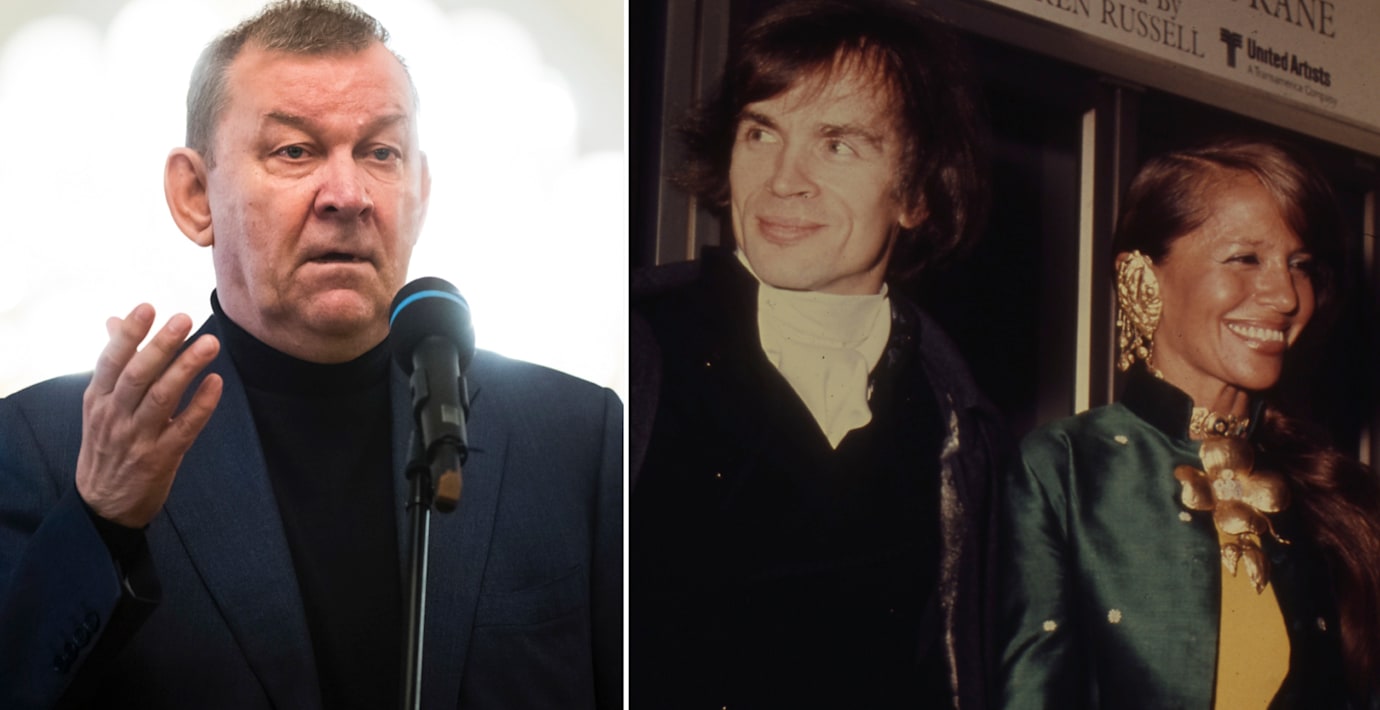
Kreml ska ha stoppat balett om homosexuell dansare
I tidningar hyllades baletten på anrika Bolsjojteatern i Moskva som århundradets bästa. Men föreställningen om en av världens främste dansare Rudolf Nurejev, som var homosexuell, blev för magstark för Kreml och nu läggs den ner.
Enligt ryska medier ska Bolsjojteatern ha fått besked från kulturministern Vladimir Medinskij att baletten var ”en samling perversiteter” och ”propaganda för homosexualitet”, vilket är förbjudet enligt rysk lag, skriver norska Aftenposten.
Bolsjoj-chefen Vladimir Urins officiella förklaring till att föreställningen stoppats är att den inte höll rätt kvalitet.
bakgrund
Bolsjojteatern
Wikipedia (sv)
Bolsjojteatern är Rysslands nationalscen för balett och opera. Den ligger vid Teatertorget (ryska: Театральная площадь) i centrala Moskva, grundad 1776 och är hemmascen för Bolsjojbaletten.
bakgrund
Rudolf Nurejev
Wikipedia (en)
Rudolf Khametovich Nureyev (Bashkir: Рудольф Хәмит улы Нуриев, Tatar: Рудольф Хәмит улы Нуриев, Russian: Рудо́льф Хаме́тович Нуре́ев; 17 March 1938 – 6 January 1993) was a Soviet ballet dancer and choreographer. He was director of the Paris Opera Ballet from 1983 to 1989 and its chief choreographer until October 1992.
Named Lord of the Dance, Rudolf Nureyev is regarded as one of ballet's most gifted male dancers.
In addition to his technical prowess, Rudolf Nureyev was an accomplished choreographer. He produced his own interpretations of numerous classical works, including Swan Lake, Giselle, and La Bayadère.
Rudolf Nureyev had his early career with the Mariinsky Ballet in St. Petersburg. He defected from the Soviet Union to the West in 1961, despite KGB efforts to stop him. This was the first defection of a Soviet artist during the Cold War and it created an international sensation.
He went on to dance with The Royal Ballet in London and from 1983 to 1989 served as director of the Paris Opera Ballet.
bakgrund
Anti-gay-lagarna i Ryssland
Wikipedia (en)
The Russian federal law "for the Purpose of Protecting Children from Information Advocating for a Denial of Traditional Family Values", also known in English-language media as the gay propaganda law and the so-called anti-gay law, is a bill that was unanimously approved by the State Duma on 11 June 2013 (with just one MP abstaining—Ilya Ponomarev), and was signed into law by President Vladimir Putin on 30 June 2013.
The Russian government's stated purpose for the law is to protect children from being exposed to homonormativity — content presenting homosexuality as being a norm in society — under the argument that it contradicts traditional family values. The statute amended the country's child protection law and the Code of the Russian Federation on Administrative Offenses, to make the distribution of "propaganda of non-traditional sexual relationships" among minors, an offense punishable by fines. This definition includes materials that "raises interest in" such relationships; cause minors to "form non-traditional sexual predispositions"; or "[present] distorted ideas about the equal social value of traditional and non-traditional sexual relationships." Businesses and organizations can also be forced to temporarily cease operations if convicted under the law, and foreigners may be arrested and detained for up to 15 days then deported, or fined up to 5,000 rubles and deported.
The Kremlin's backing of the law appealed to the Russian nationalist far-right, but gained broad support among the Russian populace. The law was condemned by the Venice Commission of the Council of Europe (of which Russia is a member), by the United Nations Committee on the Rights of the Child and by human rights groups, such as Amnesty International and Human Rights Watch. The statute was criticized for its broad and ambiguous wording (including the aforementioned "raises interest in" and "among minors"), which many critics characterized as being an effective ban on publicly promoting the rights and culture of the LGBT community. The law was also criticized for leading to an increase and justification of homophobic violence, while the implications of the laws in relation to the then-upcoming Winter Olympics being hosted by Sochi were also cause for concern, as the Olympic Charter contains language explicitly barring various forms of discrimination.
Omni är politiskt obundna och oberoende. Vi strävar efter att ge fler perspektiv på nyheterna. Har du frågor eller synpunkter kring vår rapportering? Kontakta redaktionen